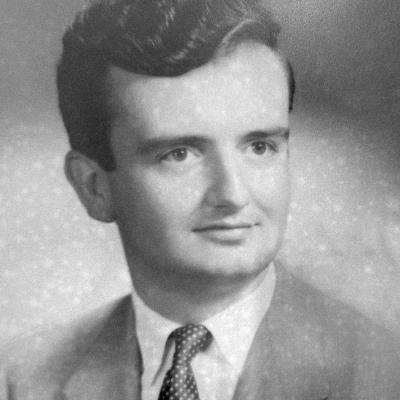John Zizioulas embarked on his distinguished educational journey at the universities of Thessaloniki and Athens, furthering his studies at Harvard and conducting research at Dumbarton Oaks, and ultimately earning his PhD from Athens University.
In 1949, Zizioulas, topping the list of successful candidates, was admitted to the Theological School of the University of Thessaloniki. After two years, he transferred to the Theological School of the University of Athens (where his family had already settled), where he graduated with “Honors” in 1955. During his studies, he spent a semester at the University of Geneva in Bossey, Switzerland, on a World Council of Churches scholarship, immersing himself in ecumenical studies and encountering the theology of various Christian confessions under renowned professors like Peter Brunner and Hendrik Kraemer.
Zizioulas, supported by his mentor and Academy member Amilkas Alivizatos, received a scholarship from the World Council of Churches for postgraduate studies at Harvard University. There, he earned a Master of Theology (MTS) and was accepted into the doctoral program. He had the privilege of studying under esteemed scholars such as Paul Tillich, George Florovsky, and Werner Jaeger, which profoundly influenced his intellectual and scientific trajectory.
Zizioulas initially chose the Christology of Saint Maximus the Confessor as his doctoral thesis topic at Harvard, delving deep into both Systematic and Patristic theology. The thought of this great father of the Church decisively influenced all his theological work since then. However, he had to interrupt his studies to fulfill military obligations in Greece. Returning to Harvard after a two-year hiatus, he was selected as a fellow at Harvard's Dumbarton Oaks Byzantine Studies Foundation. This opportunity allowed him to collaborate with eminent scholars, such as Francis Dvornik, Ernst Kitzinger, Milton Anastos, John Meyendorff, etc., and continue his doctoral thesis.
Simultaneously, Zizioulas prepared a theological thesis for the University of Athens on Ecclesiology based on early church sources, titled “The Unity of the Church in the Holy Eucharist and the Bishop.” This thesis was unanimously awarded “excellent” by the judging professors in 1966.
Given the requirement in Greece to hold a doctoral diploma from an Orthodox Theological School for teaching positions, Zizioulas prioritized and ultimately focused on obtaining his doctoral diploma from the University of Athens, aligning with his academic aspirations in Greece.





